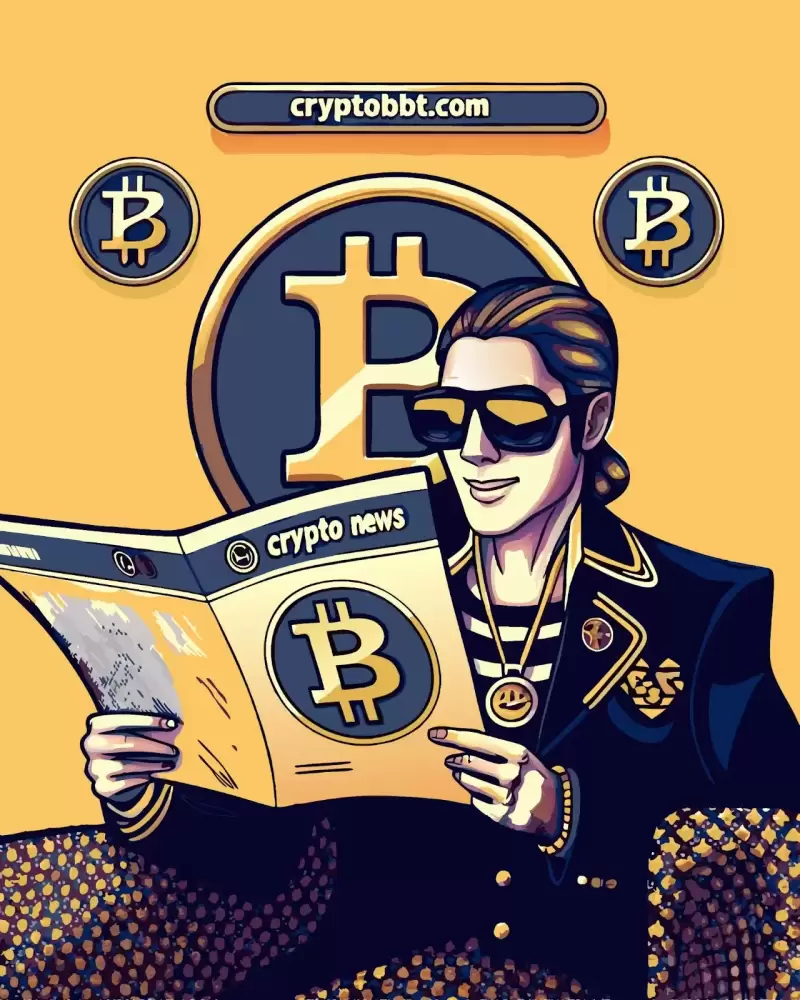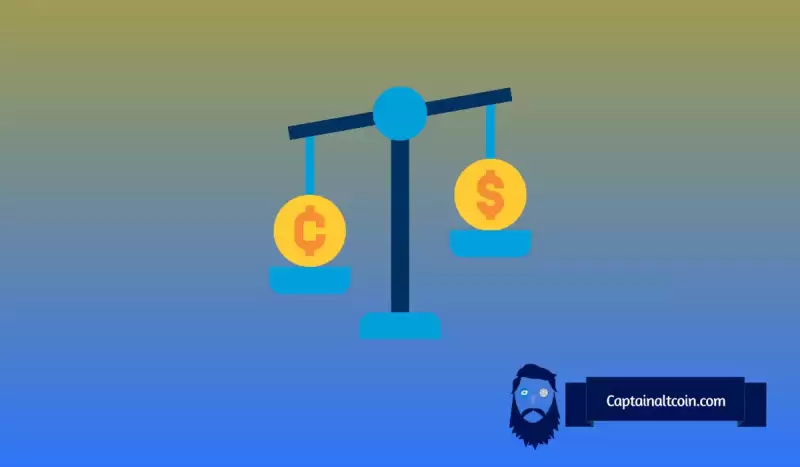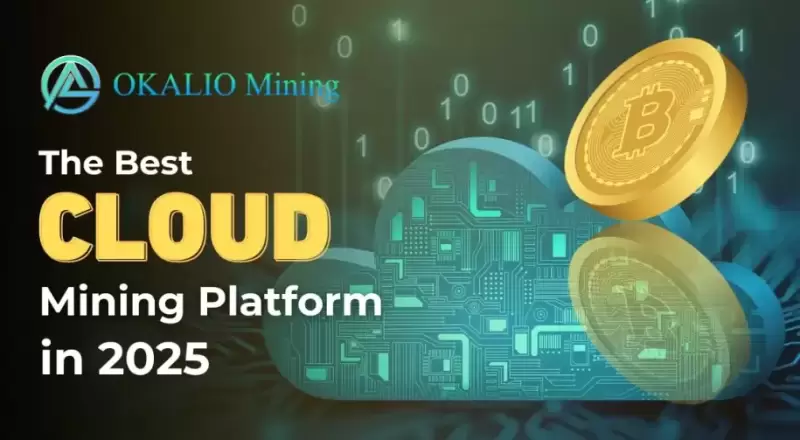 |
|
 |
|
 |
|
 |
|
 |
|
 |
|
 |
|
 |
|
 |
|
 |
|
 |
|
 |
|
 |
|
 |
|
 |
|
Cryptocurrency News Articles
Bitcoin Could Replace the US Dollar as the Country's Reserve Currency
Apr 01, 2025 at 07:40 pm
The CEO of BlackRock, Larry Fink, cautioned investors that if the US does not act on its growing debt and fiscal imbalances, Bitcoin could replace the US dollar

The CEO of BlackRock (NYSE:BLK), Larry Fink, has warned that if the U.S. does not take steps to address its growing debt and fiscal imbalances, Bitcoin (BTC) could replace the U.S. dollar as the country’s reserve currency.
Fink’s warning comes as the asset management giant is positioning itself as a key player in the digital asset space, with large positions in Bitcoin through tokenized funds and a spot Bitcoin ETF.
In his 2025 Letter to Investors, Fink expressed concern that the decentralized digital currency would be seen as a safer store of value than the dollar due to the U.S.’s history of running up national debt.
The nation’s debt-to-GDP ratio, which rose above 122% in 2023, was a clear sign that the current situation could not continue, he said. As U.S. debt increases, Bitcoin could become a preferred alternative among foreign investors seeking stability if the country’s budget issues are addressed.
Fink highlighted a troubling market trend, noting that since the national debt clock was first unveiled in Times Square in 1989, U.S. debt has increased at triple the rate of the economy. He said interest on the national debt will exceed defense spending for the first time this year at around $952 billion.
If this trend continues, debt payments and mandatory spending could consume all federal revenue by the end of the decade, pushing the nation into a chronic deficit, he said.
“If the U.S. doesn't get its debt under control, if deficits keep ballooning, America risks losing that position to digital assets like Bitcoin,” Fink wrote.
“Decentralized finance is an extraordinary innovation. It makes markets faster, cheaper, and more transparent. Yet that same innovation could undermine America’s economic advantage if investors begin seeing Bitcoin as a safer bet than the dollar.”
This observation ties into broader concerns that the dollar cannot maintain its role as a reserve currency amid worsening economic conditions.
Fink’s warnings come as agencies like Moody’s have downgraded the outlook on U.S. credit and the Bipartisan Policy Center has projected that the U.S. could default on its debt as early as July 2025.
Tokenization: The Future of Investing
Aside from Bitcoin, Fink focused on tokenization for its potential to transform financial markets. Tokenization involves creating digital tokens on blockchain technology from physical assets such as stocks, bonds, and real estate.
Fink said this technological shift could drastically alter the way financial markets function, likening it to the transition from postal mail to email.
Tokenization entails taking real-world assets like property, bonds, and stocks and converting them into digital tokens that can be bought and sold online. The token acts as a digital form of ownership, similar to a property deed.
However, unlike paper documents, these tokens are stored on a blockchain, allowing individuals to sell and buy them instantly without any delays or time-consuming paperwork.
Moreover, Fink said tokenization enables “fractional ownership,” permitting the token to be divided into an infinite number of small units.
“Every stock, every bond, every fund—every asset—can be tokenized. If they are, it will revolutionize investing. Markets wouldn'¹t need to close,” he said.
“Transactions that currently take days would clear in seconds. And billions of dollars currently immobilized by settlement delays could be reinvested immediately back into the economy, generating more growth.”
In his view, tokenization will “democratize access, yield, and shareholder voting.”
Tokenized markets would enhance the liquidity and accessibility of assets by facilitating transactions almost instantaneously, eliminating the lag associated with traditional settlement procedures. Such a shift may enable fractional ownership and shareholder engagement while democratizing investment participation and boosting market efficiency.
BlackRock’s Digital Strategy
In the letter, BlackRock noted that its U.S.-based Bitcoin ETF became the fastest-growing product launch in the ETF industry’s history, amassing over $50 billion in assets under management in one year and securing the third spot for net asset inflows among all ETF categories, trailing closely behind S&P 500 index funds.
This indicates that the company’s internal position on Bitcoin is not merely theoretical.
Furthermore, BlackRock has made significant progress with its tokenized asset funds; by April 2025, its BUIDL fund, recognized as the world’s largest tokenized treasury product, is expected to reach assets of over $2 billion.
Finally, Fink expressed optimism that the success of tokenization and DeFi can usher in a new era of finance, characterized by greater strength, efficiency, and inclusivity.
He added that he remains hopeful for long-term stability, which he believes will be driven by innovation and human adaptability, despite acknowledging the presence of economic uncertainty.
“Periods of doubt are nothing new,”
Disclaimer:info@kdj.com
The information provided is not trading advice. kdj.com does not assume any responsibility for any investments made based on the information provided in this article. Cryptocurrencies are highly volatile and it is highly recommended that you invest with caution after thorough research!
If you believe that the content used on this website infringes your copyright, please contact us immediately (info@kdj.com) and we will delete it promptly.
-

- Justin Sun Reveals First Digital Trust (FDT) Is Effectively Insolvent
- Apr 03, 2025 at 03:00 am
- In a surprising turn of events, Justin Sun, a prominent figure within the Tron (TRX) ecosystem, has revealed that First Digital Trust (FDT), a tech-driven financial institution based in Hong Kong, is effectively insolvent and unable to cover its obligations.
-

- Techteryx, the firm behind TrueUSD, required a loan from Justin Sun after its reserves became stuck in First Digital Trust
- Apr 03, 2025 at 03:00 am
- Court filings in Hong Kong and reporting from CoinDesk have revealed that Techteryx, the firm behind TrueUSD, required a loan from Justin Sun after its reserves became stuck in First Digital Trust and it became effectively insolvent.
-

-

- HEXminer is the Crown Jewel of Cloud Mining
- Apr 03, 2025 at 02:55 am
- Cloud mining has transformed the way cryptocurrency enthusiasts generate passive income. Forget about building a mining farm, dealing with noise, and handling high electricity bills—cloud mining allows you to rent hashing power and earn Bitcoin without the hassle.
-

-

-

- FDT denies Justin Sun insolvency allegations and says its stablecoin is fully backed with US Treasury bills
- Apr 03, 2025 at 02:45 am
- Sun had made the allegation earlier in the day in a social media post, where he said the firm was insolvent and unable to process the redemption of its stablecoin, FDUSD.
-

- Overtime launches $OVER token and full Account Abstraction UX
- Apr 03, 2025 at 02:45 am
- Overtime, an onchain sportsbook platform, has formally integrated its parent protocol, Thales, under the Overtime brand. The consolidation introduces a unified identity for the protocol and coincides with the launch of a new native token, $OVER.
-



























































